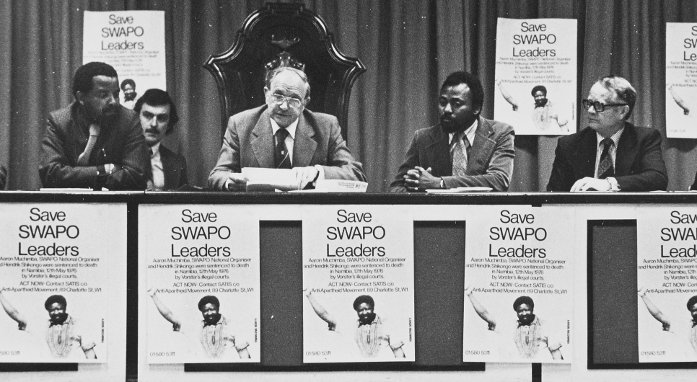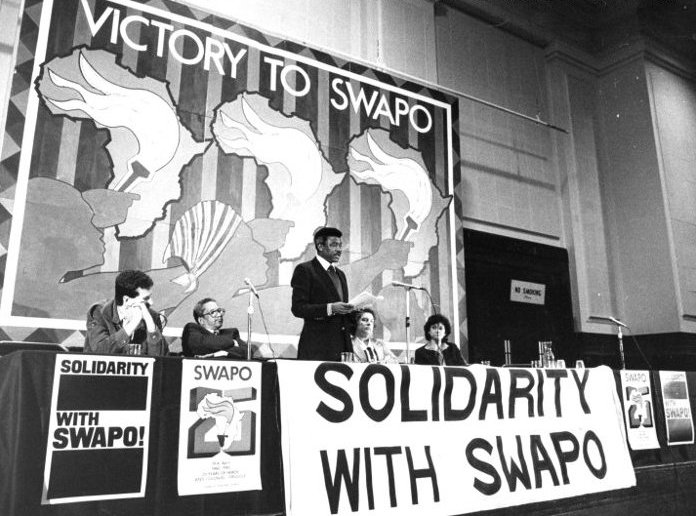LEAGUE OF NATIONS MANDATE
South Africa ruled Namibia under a League of Nations mandate given it after the First World War. It imposed apartheid and treated Namibia as a fifth province. In 1966 the UN General Assembly revoked the mandate, calling on South Africa to withdraw, and the South West Africa People’s Organisation (SWAPO) launched an armed struggle to win Namibian independence.
UN RESOLUTIONS
The Anti-Apartheid Movement pressed the British government to comply with UN resolutions and with a ruling by the International Court of Justice asking the international community to have no dealings with South Africa over Namibia. Together with the Namibia Support Committee, it campaigned for support for SWAPO as the representative of the Namibian people.
URANIUM CONTRACT
Britain’s main import from Namibia was uranium from RTZ’s mine at Rossing, shipped under contracts signed in the late 1960s. Successive British governments rejected demands by the Campaign Against the Namibian Uranium Contract (CANUC) to cancel the contracts.
WESTERN CONTACT GROUP
Western countries set up a Contact Group to negotiate with South Africa and in 1978 the UN Security Council endorsed a plan for transition to Namibian independence. Negotiations were stymied by US insistence that Cuban troops must withdraw from Angola before the plan could be implemented. The AAM asked the British government to reject this ‘linkage’ and impose economic sanctions on South Africa.
After long drawn-out negotiations, agreement was reached in December 1988 on the implementation of the UN plan. In Britain the AAM launched an appeal for SWAPO’s election fund. SWAPO won a majority in democratic elections held in November 1989 and Namibia celebrated its independence on 21 March 1990.
 SWAPO leaders Aaron Mushimba and Hendrik Shikongo were sentenced to death under the Terrorism Act on 12 May 1976. The Namibia Support Committee and Southern Africa the Imprisoned Society (SATIS) promoted an international campaign for their release. The SWAPO leaders were released on appeal in 1977.
SWAPO leaders Aaron Mushimba and Hendrik Shikongo were sentenced to death under the Terrorism Act on 12 May 1976. The Namibia Support Committee and Southern Africa the Imprisoned Society (SATIS) promoted an international campaign for their release. The SWAPO leaders were released on appeal in 1977.
Copyright © John Sturrock/Report

